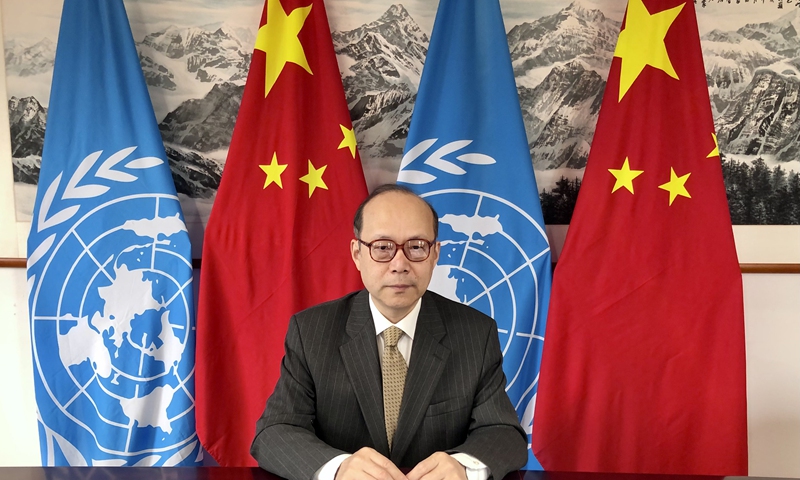
File photo of Chen Xu
A senior Chinese diplomat on Tuesday called on all parties to work together to eliminate the negative impact of legacies of colonialism on the enjoyment of human rights and safeguard international equality and justice to push forward global human rights governance to be more reasonable and inclusive.China's permanent representative to the UN Office at Geneva Chen Xu made the remarks during a video conference on the negative impact of the legacies of colonialism on the enjoyment of human rights held by China's Permanent Mission to the UN Office at Geneva during the 50th session of the UN Human Rights Council on Tuesday.
Chen said that colonialism once brought deep sufferings to the world and the problems of the legacy of colonialism still exist widely and have a serious impact on human rights development in all countries.
Keisha McGuire, permanent representative of Grenada to the UN and chair of the Special Committee on Decolonization, said that there are still 1.6 million people living in the shadows of colonialism, and the international community should respect the people from non-self-governing territory to choose their own political, economic, social and cultural development.
Scholars from China and other countries and regions including South Africa and India pointed out that the US, the UK and some European countries carried out brutal genocide during the colonial period, which brought deep sufferings to the people.
However, these countries have no self-reflection on their colonial history, but pretend to be "human rights leaders," engage in "human rights preaching" and interfere in others' internal affairs, the scholars said.
These Western countries use their voice and power in the global economic system to exclude developing countries from the international economic order under the pretext of "human rights, labor and environmental standards," to plunder their natural resources and exploit their labor force.
These countries should face up to and reflect on their colonial history, stop interfering in others' internal affairs, and help developing countries in Asia, Africa and Latin America achieve sustainable development. These scholars called on UN human rights mechanisms to pay more attention to the negative impact of legacies of colonialism.

